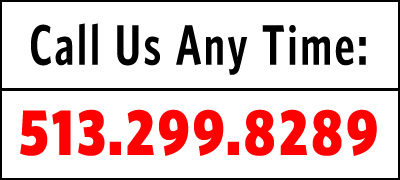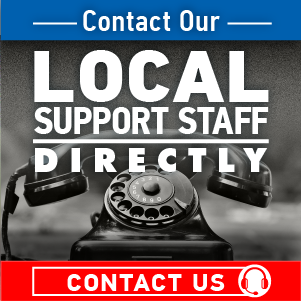Every time you sell a house is different, because each Buyer, Seller, date, time, and place are unique…
BUT there are certain practically universal steps when it comes to selling ANY house.
These steps include very basic ones, like:
- Actually deciding to sell your house!
- Deciding whether or not to use a REALTOR®.
- Closing the Sale & getting paid.
Other steps might not be so obvious, but are nearly as universal, such as:
- Researching your local market & comparable recent sales (“comps”).
- Getting your house ready to sell, staging, and taking pictures.
- Marketing your property & showing it to prospective Buyers.
- Conducting a Title Search to ensure the property is deeded & available for transfer.
- Dealing with negotiations, contracts, and addendums.
Below, we’ll go over the 10 steps to sell basically any Philadelphia house (assuming you’re going for a Retail Sale).
One way to shortcut this entire process is to sell your house fast, in as is condition, to a local investor for a cash offer. (This is what we provide at PhillyBuyer.)
Before you do, it makes sense to consider whether a retail sale is right for you, so these 10 steps will guide you through the process.
Step 1: Establish Your Home Selling Timeline.
Ideally, you don’t want to rush the home selling process.
However, if you have any external time constraints, the process might be rushed by its very nature.
For example, if you need to:
- Sell your Philadelphia house when moving or relocating,
- Sell fast because you’re paying double mortgages,
- Sell an inherited or vacant home, or
- Sell a home in many other scenarios that require expedience,
Then your timeline will be of the utmost concern.
The first consideration you need to solidify:
Pick a Date By When You Need the House SOLD.
In an ideal world, with time as a luxury, you can use online tools like the Zillow Owner Dashboard, Realtor.com Seller Resources, and Local Market Reports, to determine the best possible month & time of year to list your property.
However, if you're under a time crunch with real-world deadlines, you'll need to sell as fast as possible.
No matter what:
Do your best research to set a reasonable date, most likely at least 3 - 6 months out (to give time to find a REALTOR®, list, market, and sell the property).
Be realistic, set a date, mark it on your calendars, and get the ball rolling.
img via: Max Pixel – CC0
Step 2: Research Your Local Market to Get an Idea of What Else Is For Sale
Before you even start interviewing Real Estate Agents and/or researching how to sell your Philadelphia house For Sale By Owner (FSBO):
Dip your toes in the local market, and spy on what else is for sale!
You need to know the competition.
Your house doesn't exist in a vacuum, and any potential Buyer in the market will be looking at not only your house, but on average at least 10 other homes before even making an offer.[1]
Research what else is for sale, and be honest with yourself as to how your house stacks up.
Remember: your memories & experiences are attached to this home, but to a new prospective Buyer it's just a house.
Focus on nearby comparable properties currently for sale & recently sold to start coming up with a rough ballpark price of what you feel your house is realistically worth.
Step 3: Decide If You Will Be Selling With (or Without) a REALTOR®.
There are Pros and Cons to working with a Real Estate Agent.
The most obvious negative:
Price.
Working with a Real Estate Agent to sell your Philadelphia real estate means most likely paying 6% of the total sale price as a commission!
That is 6% directly out of your pocket.
However, every case is different, and depending on your circumstances that 6% might be a cheap bargain for the amount of service you’ll receive.
To help you make the choice, later, on page 64, we’ll go in-depth to help you answer the age old question:
Should You Sell Your House Without a REALTOR®?
If You’re Going to Hire a Real Estate Agent, Start Interviewing ASAP.
In case you decide you do want to hire a Real Estate Agent:
Choosing the RIGHT Real Estate Agent is critical!
Not all REALTORS® are created equal.
You don’t want to rush into hiring the wrong Real Estate Agent!
A Listing Agreement is usually exclusive for at least 90 – 180 days. While it does have an expiration, until that date, you are stuck with whatever Agent you’ve signed on with.
Some top producers offer excellent customer service & a brilliantly systematized marketing approach to get your house sold at the highest price, fast.
On the other hand, plenty of Real Estate Agents are lazy, will do little more than put a sign in your yard & list the property on the MLS…
Then will still pocket up to the full 6% commission!
That’s why later, we’ll provide:
5 Quick Tips to Choose the Right Real Estate Agent,
Plus, we’ll go in-depth with:
20 Questions to Ask Your Real Estate Agent (Before Signing Any Agreement)
Step 4: Get Your House Ready To Sell!
Once you’ve decided to sell, and have chosen to either work with a Real Estate Agent, or sell your house directly…
You’re going to need to get it ready to sell.
You have basically 3 options:
- Fix the property up to ideal retail condition.
- Make some important improvements to boost value.
- Sell the property as is.
There are reasons to consider all of the above, and in Section 2, “Getting Your House Ready to Sell” we’ll be covering them in depth.
Deciding to Do the Repairs & Improvements, or Sell Your House As Is.
There are times when you’d rather not worry about the repairs…
And instead will be better off to Sell Your House As Is. The most common of which is quite obvious:
When you can't afford the time and/or money to do the repairs!
Maybe you would get more for the house if you handled the repairs or improvements, but sometimes your time or money right now is more valuable than all the investment & headaches it would take to fix the place.
We go into much more depth on the in’s and out’s of when to Do the Repairs as well as when to Sell Your House As Is later, when we discuss:
How To Sell A House That Needs Work
One Month Before Listing: Start Moving Out, Keep Cleaning & Decluttering.
Once you have your timeline, and are getting ready to list your house for sale…
Whether it’s working with a REALTOR® or going the For Sale By Owner (FSBO) route, about one month before you actually list your house “For Sale”:
Your house needs to showing-ready at practically all times, and at a moment’s notice.
That means, if at all possible, it’s best to move out at this stage.
This might mean moving into an apartment while you shop for your new home, or, if you’re lucky, you’ll be able to buy your next house and move in, before you need to sell this current house.
If neither of these are possible or feasible to you, a final option would be moving the bulk of your own personal items into storage.
That way, your house will be much easier to keep clean & decluttered. Plus, it will leave more open space (making your house appear bigger), and give your prospective Buyers’ imaginations room to put their own spin on the house.
Quick Tip: If all of this seems overwhelming, don’t forget you can always sell your house as is, fast, for cash, to a local real estate investor.
You might not get as much money for the house, but you’ll also save yourself a ton of hassle & other unpredictable expenses that go along with the preparation for and actual process of selling.
Step 5: Listing and Marketing Your House For Sale.
Now that your house is ready to sell, you’re going to need to actually attract an interested, qualified Buyer.
This is a very complicated process, since for most people a home is their single largest asset. It’s a big purchase, accompanied by regulations, red tape, 3rd parties, and legal terms.
You’ll need to keep several factors in mind when Listing & Marketing your house For Sale:
- How will prospective Buyers contact you?
- Is there a way they can find the property online?
- Where will you be marketing the Listing?
- What will you do to follow up with Buyers?
- How will you keep track of who’s still interested?
These are just some of the basics you’ll need to have in mind the moment you start drafting your Listing.
Choose the Right Listing Price for Your Home.
The first & most obvious choice you need to make when selling your house:
What is your Asking Price?
An Asking Price too high, and you’ll get little to no interest.
While many people think: “We can just lower it later,” this strategy is fundamentally flawed.
The longer your property sits on the market unsold, the more people are going to wonder what’s wrong with it.
A Listing with a history of price reductions, sitting on the market looks bad. Most likely you’ll end up waiting around for months only to get the same amount you would’ve by choosing the right Asking Price in the first place.
An Asking Price too low, and you’ll practically be giving the place away… losing out on tens, or even hundreds of thousands of dollars.
When it comes to choosing the best Listing Price, this is an area where you’ll find no substitute for getting a Real Estate professional’s help!
Make Sure to Get Professional Quality Photographs!
A Listing with bad photographs is a Listing that will sit on the market too long.
If a picture is worth a thousand words, then 25 – 30+ high quality professional photos of your home, inside & out, are worth a 500+ page Encyclopedia to your prospective Buyer.
No matter what, you’re going to need pictures of the property to properly market your home.
The better your pictures, the better your chances at finding the right Buyer, fast.
Unless you are a qualified professional photographer, this is an area worth hiring someone experienced, who can help portray your home in the best possible first light.
img via: Max Pixel – CC0
Step 6: Show the House & Meet With Prospective Buyers.
Now that your house is Listed for sale, hopefully the interested prospective Buyers will start flowing in.
People will find your house from your advertisements, from your signs in front of the house, and potentially from the MLS (if you’re working with a Real Estate Agent).
That means prospective Buyers will be trying to contact you in all of the following ways, for which you’ll need to be prepared:
- Phone call.
- Visit to your house.
In addition to being ready to field communications via all of the above channels, you’ll also need to be prepared to schedule a Showing.
You might also consider hosting & marketing some Open Houses, which presents its own set of challenges.
Avoid “Tire Kickers” by Only Showing to Buyers Who Are Pre-Approved for Financing.
One of the worst things that can happen with Showing your house for sale, is wasting time with a “Tire Kicker:”
Someone who doesn’t have the real intention or means to buy your house.
A “tire kicker” will come by, take the tour of your house, and then tell you they’re going to think about it…
Or maybe they’ll even make a ballpark offer (with nothing to back it up). That tire kicker’s offer is not going to ever come true.
One of the best ways to avoid showing your house to tire kickers, who are just there to waste your time, is to only book a Showing with prospective Buyers who prove their financial means to buy.
That means asking them:
“Are you pre-approved for a mortgage?
Or are you a cash buyer?”
If their answer to both questions is “No” then your only reply will be to send them to a qualified Mortgage Lender who can get them pre-approved for a loan.
Until then, all you have is a tire kicker… who knows if they actually can get pre-approved for a loan to buy your house?
Step 7: Negotiate With a Prospective Buyer Till You Accept Their Offer.
Once you actually have a prospective Buyer, making an offer that is somewhat near your ballpark Asking Price…
It’s time to negotiate!
Keep in mind, practically every aspect of the real estate transaction is negotiable. It’s not just about the Price.
Consider negotiating on:
- Closing date,
- What’s included in the sale (vs. what’s not),
- Who pays for any repairs or updates,
- Contract addendums (like Inspections or Appraisals),
- Anything else you want!
While there are some aspects of the real estate transaction that are legally regulated, requiring certain standards to be met…
Most every part of the sale of your house is negotiable.
Keep this in mind, and negotiate to achieve your goals.
img via: Dan Moyle – CC BY 2.0
Step 8: Property Under Contract or “Pending.”
Once you and the Buyer have agreed upon a price & terms, you’ll sign a Contract of Sale. Almost always:
This Contract comes with Contingencies.
Contingencies are certain conditions that must be met for the actual Closing of the sale to go through.
Contingencies are clauses in the Contract that would allow either party to back out of the sale, if the conditions outlined are not met.
Some of the most common Contingencies include:
- Inspection Contingency. If material defects are discovered during the Buyer’s Home Inspection, they reserve the right to renegotiate the price in light of the costs of repairs… or to make their purchase Contingent on you handling the repairs first.
- Appraisal Contingency. A Buyer who is securing any type of mortgage will most likely require an Appraisal. This provides the Lender with a professional assessment of the home’s value they can trust. That’s why Buyers often make their offer Contingent on an Appraisal coming in at or above their offered price.
- Financing Contingency. Similar to the Appraisal Contingency, this has to do directly with the Buyers ability to close on financing for your property. This is why it’s important to only work with pre-approved Buyers, but there are many nuances to mortgages that can present hurdles even later stages in the process.
- House Sale Contingency. While the Buyer ideally will be able to sell their current house before making an offer… it doesn’t always work out that way. If they Buyer is selling their current home, at the same time as they’re buying your home, they might make their offer Contingent on their own home selling first.
Satisfying all the above Contingencies can be a lengthy process.
At least 2 – 3 different professionals will need to physically visit the property (Inspector, Appraiser, others), sometimes scheduling the appointment weeks out in advance.
Then, they will still need to handle some extra research and draft professional reports to deliver to you, the Buyer, the Lender, and the Title / Escrow Company.
This period of time, where both the Seller & Buyer have signed an agreement, but the property has not officially sold yet is known as “Under Contract” or “Pending.”
Step 9: Completing Addendums / Rengotiating.
While your property is Under Contract or Pending, you’ll usually encounter some minor … to major & severe … hurdles & bumps in the road.
The most common issue will arise with Home Inspection Contingencies:
Home Inspectors will find problems with every home.
If you didn’t complete your own pre-sale inspection, you (and the Buyer) will probably be surprised by some of the issues the full Home Inspection uncovers.
In a high percentage of home sales, you will have to either lower your price, or complete some repairs yourself, to actually satisfy a Buyer’s Home Inspection Contingency.
Other issues are likely to arise during this stage if your Buyer is using a bank mortgage, or, worse yet an FHA or VA loan.
Even if the Appraisal comes in at a good number, it still might take weeks to actually have it completed.
If your Buyer is using an FHA or VA loan, a separate inspector / appraiser will have to come from that organization, and might create other stipulations you’ll have to satisfy for the Buyer to get their financing to buy your property!
Once all addendums are completed, all renegotiations finalized, and all changes to the Contract of Sale signed, then it’s time to finally go to the Closing table.
img via: Pixabay – CC0
Step 10: Closing & Settlement of the Sale!
If you’ve already made it through all 9 of the previous steps, and it’s time to reach the Closing table for the Settlement of the sale, you’re pretty much done.
At this point, your house is basically sold.
However, until the Deed is recorded, the Title doesn’t officially transfer. That means, until & unless the Closing & Settlement are completed successfully…
You still haven’t technically sold your house!
Later, we’ll go into much more detail examining “What Can Go Wrong at Closing, and How to Prevent It,” but for now just remember these 2 critical points.
#1. Work With a Reputable Title Company, Real Estate Attorney, and / or Escrow.
Depending on what type of property you’re selling, what type of financing your Buyer is using, and where your property is located, you will need professional assistance to close the sale.
Unless you are an attorney or Real Estate Broker well versed in the Deed reporting & Title transfer process, as well as equipped to handle Escrow and Trust accounts during the Closing & Settlement, you need to work with qualified professionals who possess the experience and infrastructure to do so.
You can find a reputable local Title Company or Real Estate Attorney by asking around among local REALTORS®, or researching on AngiesList & Google.
Once you’ve chosen the right Title Company or Attorney to help you at your Closing, they will guide you through to the end of the process (and most likely will host the Closing at their offices).
Quick Tip: Always buy the Title Insurance!
For such a small price added on to the Closing, you will save yourself from potentially very costly problems down the line.
Even if you’ve done a comprehensive Title Search and found no issues, that’s no guarantee they won’t be found later, or that there was nothing pending that had not yet been reported.
Title Insurance is a cheap deal for an excellent value, and is literally always worth it.
#2. Still Follow Up With All Parties Yourself.
There’s no substitute for doing your own legwork when it comes to Closing on the sale of your property!
That means calling, emailing, and texting everyone involved in the Closing the day before (and perhaps more times than that leading up to the Closing date).
Make sure everyone is on-time and has all documents ready.
Review the documents yourself to make sure everyone has signed their details correctly. One of the most common issues at the Closing table is missed, smudged, or incorrect signatures.
Finally, remind the Buyer to bring 2 forms of Identification to the Closing, just to be sure. This can be a simple last minute mistake that can push the Closing back by days or even weeks if your Title Company is especially booked.
Once all this is done, congratulations:
You’ve Sold your House!
The Deed is (or should soon be) reported, the Title is transferred, and the Buyer now owns the property.
You should also have received your payment, either in the form of wire transfer or cashier’s check, so check your accounts.
Congratulations on your sale!
[1] Realtor.com, “By the Numbers: Who’s Buying Homes These Days?”




![Sell Your Philadelphia House Fast [img: hurdles race]](/wp-content/uploads/2017/10/hurdles-2.jpg)
![Sell Your Philadelphia House Fast [img: Unique Flower]](/wp-content/uploads/2017/10/unique-flower.png)
![Sell Your House Fast [img: Mobile Communications]](/wp-content/uploads/2017/10/business-man-phone-image.jpg)
![We Buy Philadelphia Houses [img: Home staging example]](/wp-content/uploads/2017/10/staging-dining-room.jpg)
![Sell Your Philadelphia House Fast [img: Listing Agreement]](/wp-content/uploads/2017/10/document-with-pen.jpg)
![Sell My House Philadelphia [img: Real estate website review]](/wp-content/uploads/2017/10/person-on-computer.jpg)



